The PAW Lab conducts research in several areas of human-animal interaction and well-being. Our lab takes a strengths-based, developmental systems approach to assessing human-animal interaction. Our work is interdisciplinary and collaborative, using innovative, multi-method designs to understand the role of animals in family life.
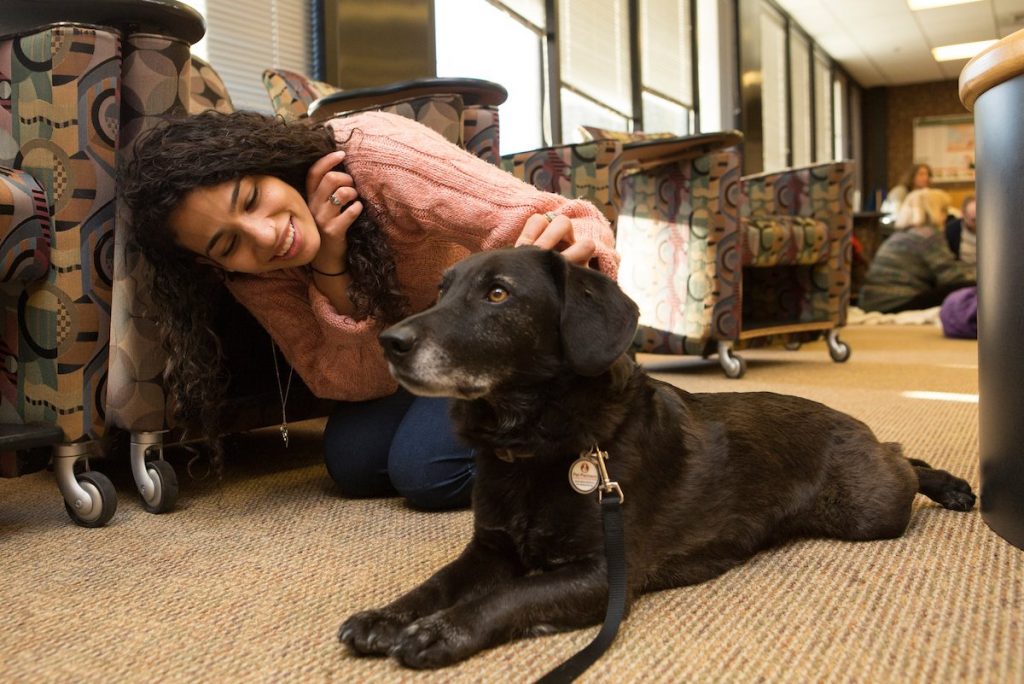
Current Research Studies
Human-animal interaction can provide an opportunity for developing positive social skills and fostering resilience in adolescence. Understanding how HAI fits into the developmental context for diverse children and adolescence is a key area of scholarship for the PAW Lab.
The Teen & Dog Study
The Teen & Dog Study is a multi-year, longitudinal study assessing the effects of companion dogs on adolescents with social anxiety and their families. This study collects quantitative, qualitative, and psychophysiological longitudinal data from adolescents and their parents. The Teen & Dog Study is funded by the Eunice Kennedy Shriver National Institute of Child Health and Human Development (NIH/NICHD) and is conducted in partnership with the Youth, Media & Wellbeing Research Lab at Wellesley College, MaineHealth Institute for Research, and Boston University.
The Therapy Dog Anxiety Reduction (TDAR) Study
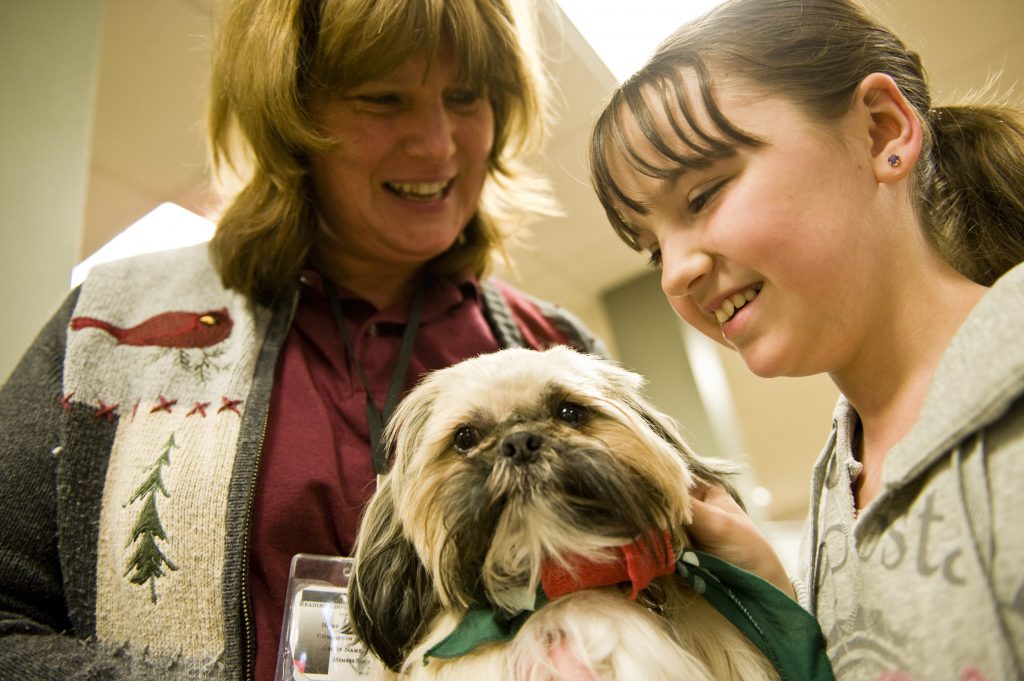
The TDAR Study is exploring the role of therapy dog interactions in reducing psychophysiological reactivity and self-reported anxiety in adolescents during a social stress task. This project also involves behavioral coding of interactive therapy dog and adolescent behaviors to explore how certain behavioral patterns may support reduction of stress reactivity and inform best practices for therapy animal well-being.
You can read about the results of the initial experimental study here and behavior coding results here. The TDAR Study is supported by the Eunice Kennedy Shriver National Institute of Child Health and Human Development (NIH/NICHD).
Completed Projects
Dogs and Adolescent Social Anxiety (DASA) Study
The DASA Study tested the use of innovative physiological and activity tracking methodologies to explore the role of dogs in measuring adolescent anxiety. Phase 1 pilot data collection for the DASA Study was funded by the Society for Companion Animal Studies, and Phase 2 data collection was funded by the Brain and Behavior Research Foundation. Read about the results of the DASA study here.
Parental Behavior, Human-Animal Interaction, and Adolescent Development
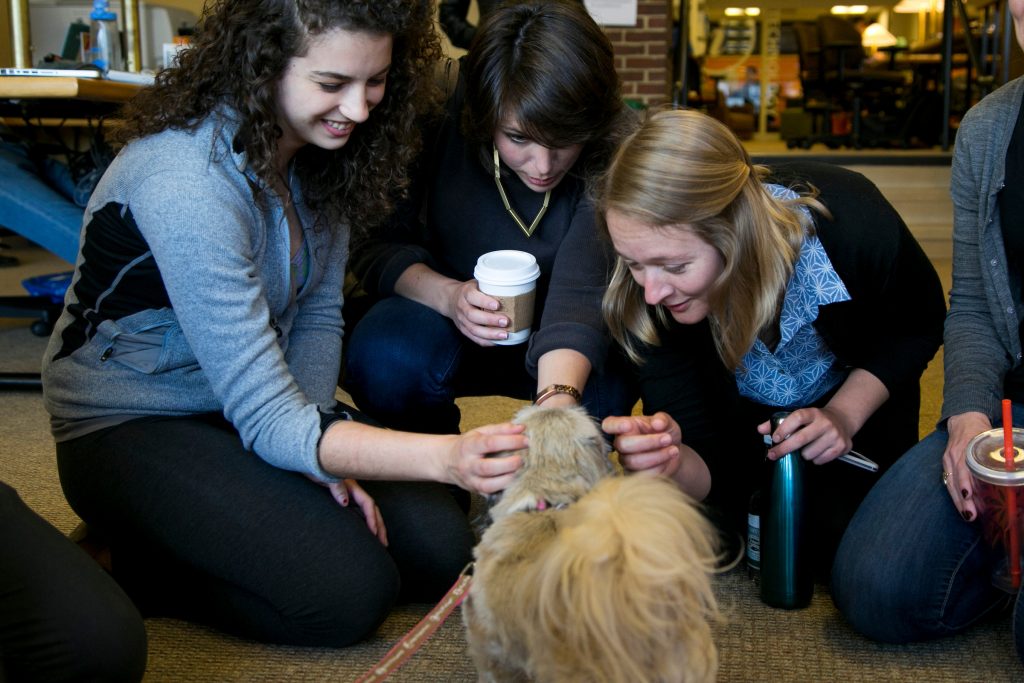
The goal of this study was to longitudinally assess how youth-pet relationship quality may predict adolescent health and development, and to explore how parents influence the ways in which pets are integrated into the family system. This study was conducted in collaboration with the Youth, Media, and Well-Being lab at the Wellesley Centers for Women, and is funded by the Eunice Kennedy Shriver National Institute of Child Health and Human Development (NIH/NICHD).
Read more about the results of this study:
- Longitudinal associations between pet relationship quality and socio-emotional functioning in early adolescence
- From regulating emotions to less lonely screen time: parents’ qualitative perspectives of the benefits and challenges of adolescent pet companionship
- Associations between pet care responsibility, companion animal interactions, and family relationships during COVID-19
- Companion animal relationships and adolescent loneliness during COVID-19.
- The role of pet companionship in online and offline social interactions in adolescence
Human-Animal Interaction and Trajectories of Adolescent Development
This study assessed the relationship between pet ownership and demographics, cultural and ethnic identity, social environment, and developmental outcomes over time through analysis of a large national study of adolescent development (The ABCD Study). This study was funded by the Human-Animal Bond Research Institute.
Read more about the results of this study:
- Companion animals and the relationship between peer victimization and emotion regulation in youth
- Companion animals and profiles of peer social behavior in adolescence
- Profiles of family pet ownership during the COVID-19 pandemic
- Companion animals and adolescent stress and adaptive coping during the COVID-19 pandemic
- Longitudinal patterns of companion animals in families with children during the COVID-19 pandemic
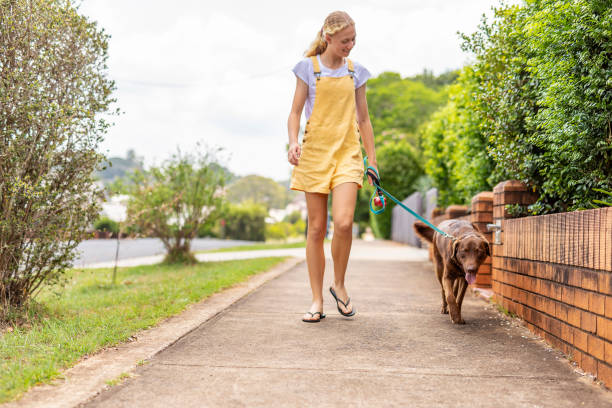
Human-Animal-Environment Interactions as a Context for Positive Youth Development

Dr. Mueller serves as a collaborator on an ongoing longitudinal study of animal, horticulture, and nature-based interventions as an approach to supporting youth self-regulatory skills in special education environments. This study is led by the Institute for Human-Animal Connection at the University of Denver and is a collaboration with Green Chimneys Children’s Services.
For more information and to download the study’s comprehensive documentation report, click here.
How to Get Involved
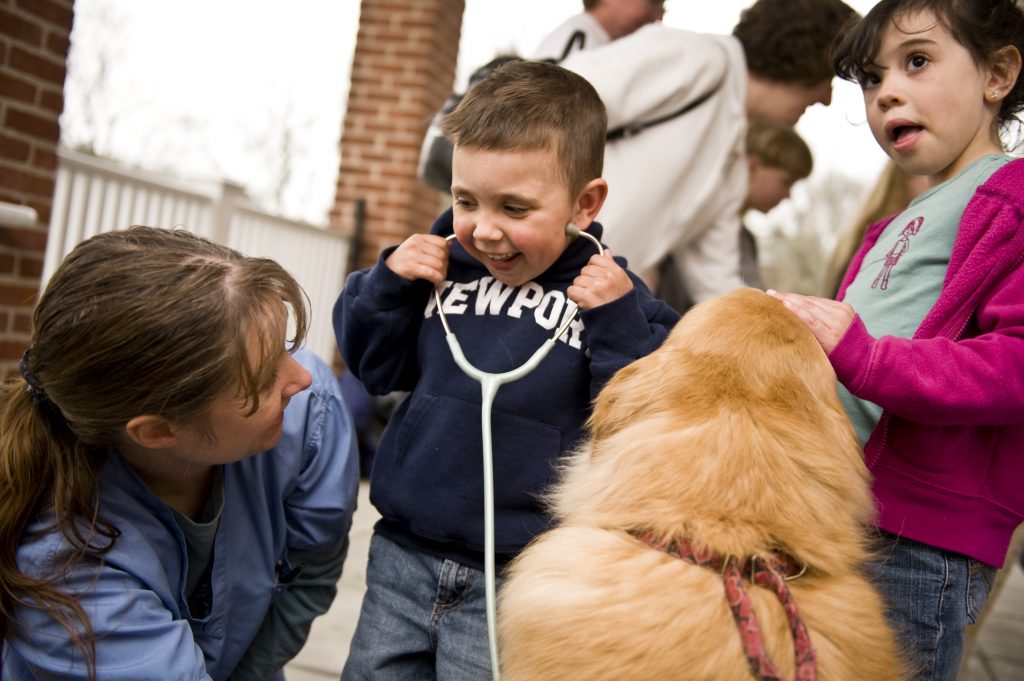
Student Research Assistants: If you are a Tufts student who is interested in becoming involved with the PAW Lab, please email us at TuftsPAWLab@tufts.edu.
Media inquiries: For media inquires related to our lab’s work, please email Megan.Mueller@tufts.edu
Animal-Assisted Interventions: For more information about the Tufts Paws for People therapy animal group, please visit http://hai.tufts.edu/paws
For all other inquiries, please email us at TuftsPAWLab@tufts.edu.



